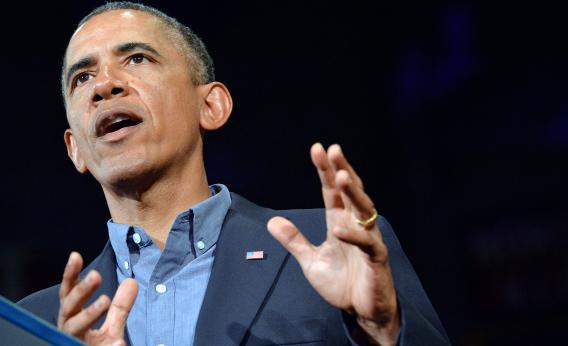When I’ve discussed higher education reform with members of the Obama administration they tend to talk as if they have left-wing opposition to their ideas in mine, like if you were to argue about this stuff with a skeptical liberal college professor. But Democrats-to-Obama’s-left have much less power in DC than Republicans-to-Obama’s-right. What are they going to do? Jonathan Chait thinks there’s a fair chance Republicans will be against this on basically grounds of knee-jerk anti-Obamaism but also at least some chance that a drive to stick it to academia and increase the efficiency of federal spending will have some appeal.
I’m skeptical. People on the right rarely come out and say this explicitly (Tad DeHaven at the Cato Institute is an important exception) but conservatives generally don’t agree with the sentiment that increasing the cost-effectiveness of government is a good idea.
Chait discusses this all in terms of an analogy to certain aspects of the Affordable Care Act, but a much closer analogy is the Obama administration’s efforts to make poorly performing for-profit colleges ineligible for subsidized federal student loans. Owners of for-profit colleges (including Slate’s parent company) generally argued that this kind of top-down regulation was going to be innovation-stifling, option-restricting, competition-reducing, and overall bad. Republicans overwhelmingly agreed with this line. Their view is that if subsidizing student loans is wasteful, the way to address that is to reduce subsidies for student loans. Republicans favor rules to restrict eligibility for public money in cases (like drug testing for SNAP benefits) when the restriction can be structured in a way that reduces aggregate spending. But a rule that tries to ensure that a fixed pool of money should be spent wisely rather than foolishly doesn’t appeal to the right.
In part that’s because the right has somewhat oddly committed itself to the “public choice” view that it’s impossible for public sector agencies to be effectively managed. But in part I’d say it’s because they would genuinely prefer to see tax dollars wasted than well spent. The big problem with Social Security, from a conservative viewpoint, is that a program of simple cash transfers is so clearly free of waste that it’s very politically challenging to cut it. The way federal higher education subsidies are currently structured allows conservatives to advance the (empirically false but not totally insane) argument that these subsidies are useless and only fuel tuition hikes. If policymakers were to succeed in reforming higher education finance so as to make it unambiguously beneficial, then the case for spending more money on subsidies would be extremely compelling and the public sector would grow.
To take an analogy outside the education space, liberals often argue that the government should spend more on transportation infrastructure. The best counterargument to this is that America has the highest cost structure for civil engineering projects in the world so spending more would lead to tons of waste. If some future reformers were to step up and bring U.S. costs down to French or Spanish levels, then suddenly the number of projects that pass cost-benefit scrutiny would soar and the public appetite for new infrastructure investments would soar with it. If you’re committed to keeping the government small, your best bet is to opportunistically align with rent-seeking elements and try to ensure that when public money is spent it’s spent wastefully.
